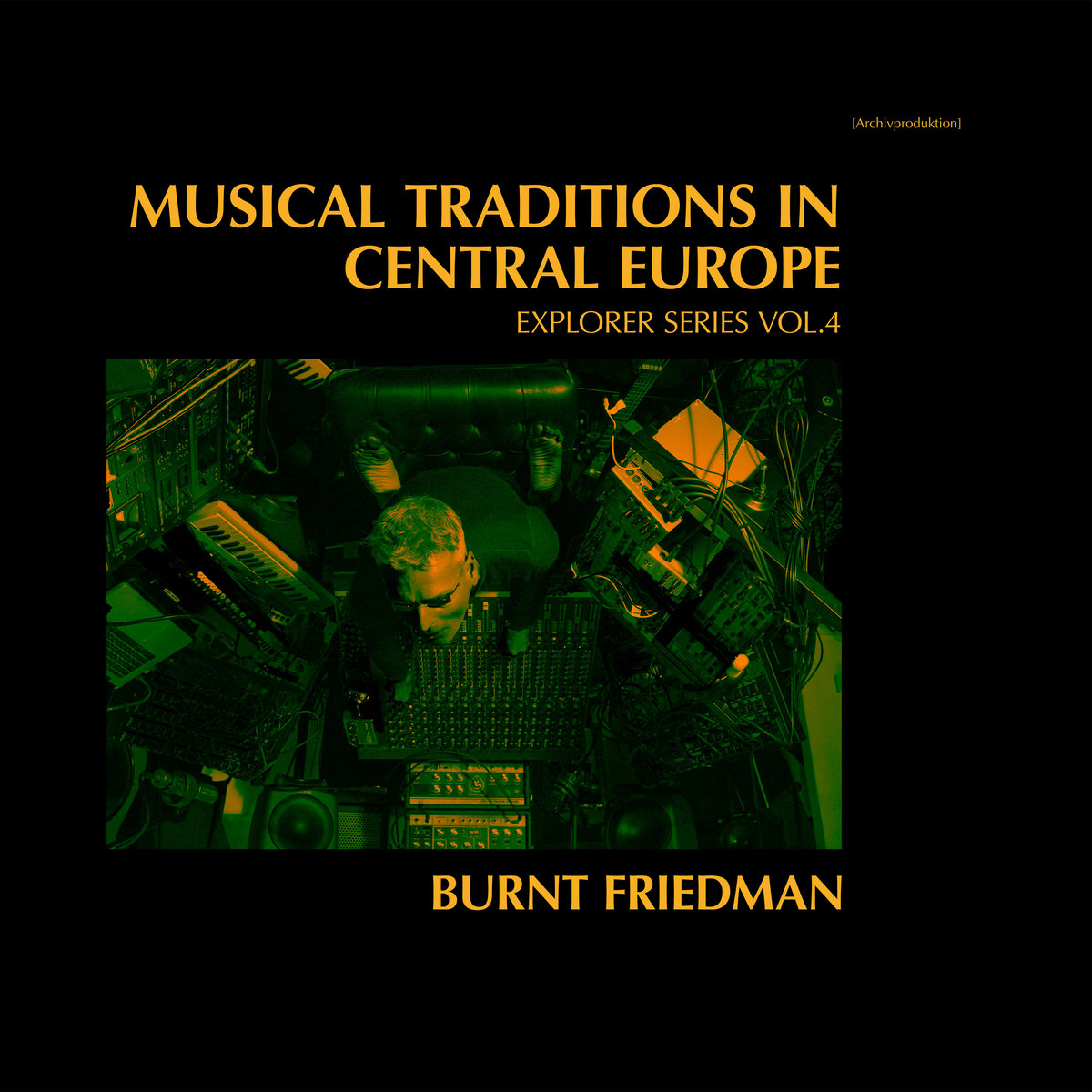Before Burnt Friedman’s appearance at Jaeger in 2018 he started explaining Jaki Liebezeit’s interpretation of time through percussion. With fingers sliding up and down the bar as he counted out integers, he tried to illustrate the concept of rhythm he had inherited from the Can drummer during their artistic tenure together, but which my limited, conditioned theoretical background failed to grasp even at the fundamental level.
Burnt Friedman has always interpreted music beyond any culturally pre-determined realities, and from his intriguing use of rhythms to re-defining performance spaces – reconstituting the stage on Jaeger’s dance floor and using guitar amplifiers to sing back artificial voices concocted from synthetic sound sources – the artist evokes the spirit of modernist composers working in a post-digital music world.
There is nothing but music, and the continued exploration of the absolute limits of music that informs his work, and that’s why when you see a title like “Music Traditions in Central Europe” bearing the artist’s name, you have to consider it with a hint of irony. The artist has after all made an abundantly clear habit of negating those very traditions, and arriving on his own label, the contextually titular Nonplace, and under the subtitle “explorer series 4” with 1-3 noticeably absent, this record upholds those idiosyncrasies.
Between noise and silence, Burnt Friedman finds new rhythms, which for the most part occur through the percussive parts, with harmony and melody, offering languid legato accompaniment that thrives in dissonance, but also far more liberal with consonance, considering the style of music. Pieces like “Sensation des Normalen” come together like contrapuntal rhythmical pieces, with large chunks simply removed across a vertical plain, to create new evolving rhythms. It’s as if the first beat moves with every bar, giving the music a kind of unexpected sentience.
The record comes at a time when everybody is looking to predict the future traditions, while Burnt Friedman is still trying to define the parameters of the past. His work and exploration in the traditions of non-western music, emerges as a new musical dialect, forgotten before it was refined, but exciting and innovative for anybody looking for an alternative voice in a fairly homogenised landscape. While all the music was recorded during the course of the last decade, it’s a refreshing reminder of the possibilities of the next.
Between the stark rhythmic music, an melancholic air saturates the record, especially on tracks like “Sky Speech” and “Moslemschleier”where Hayden Chisholm’s reed instruments blow through the arrangements like an unnerving encounter with a mystical past. The record flits between the swelling bass frequencies of a track like “Supreme self dub” and the heavenly melodies of something like “Schwebende Himmelbrücke,” but it’s the feeling of space that we encounter on the record through Friedman’s non-didactic rhythms where the charm of Musical Traditions in Central Europe lies.

